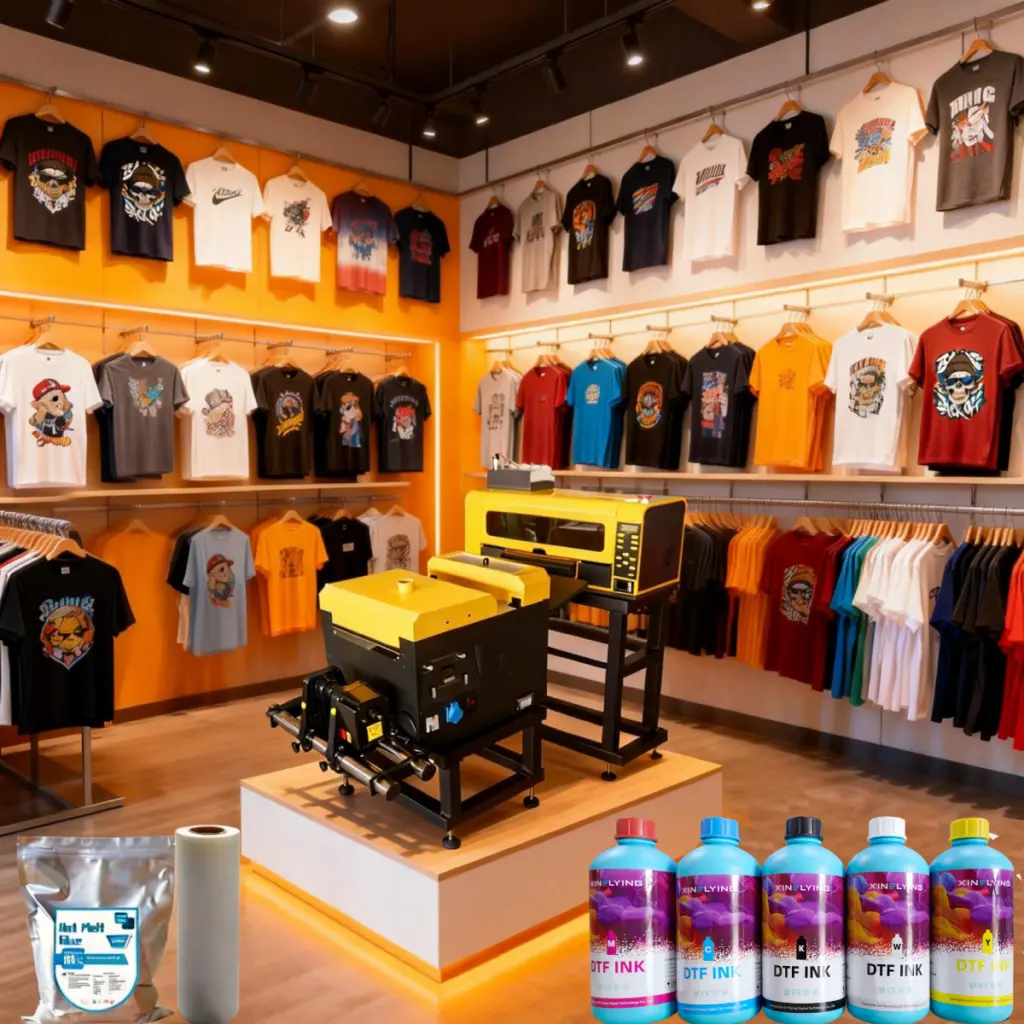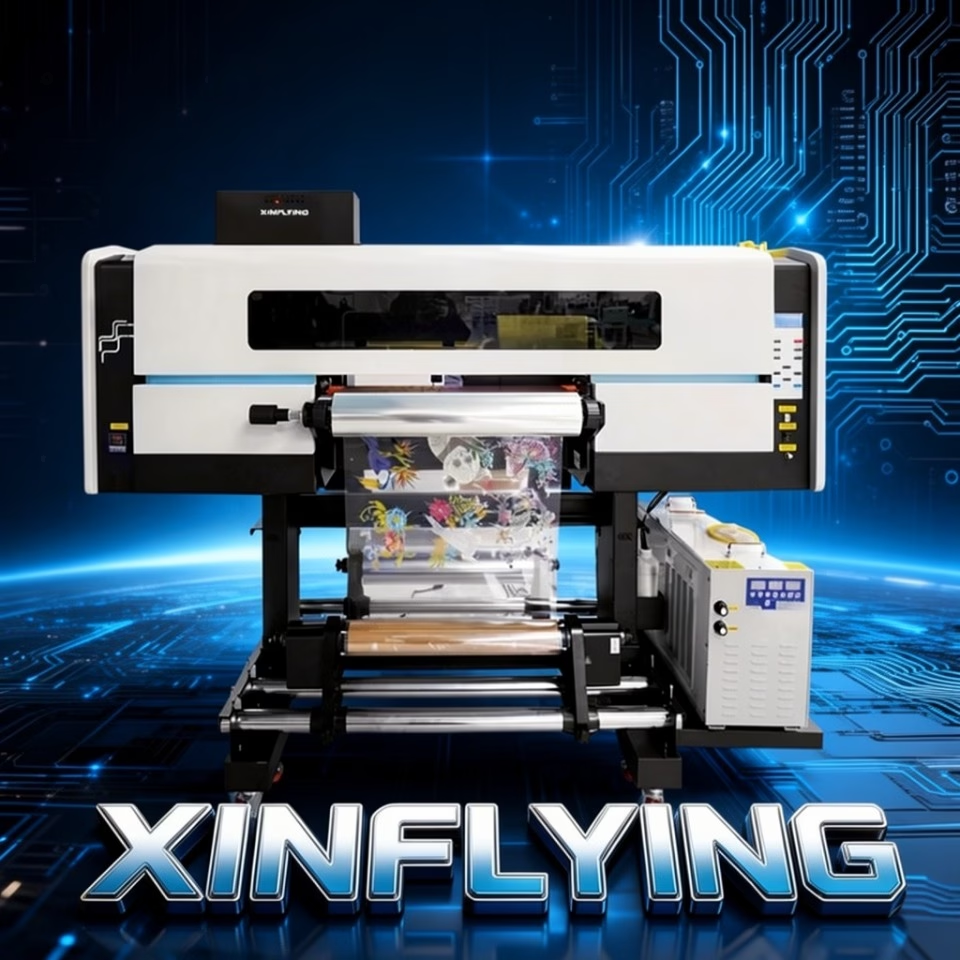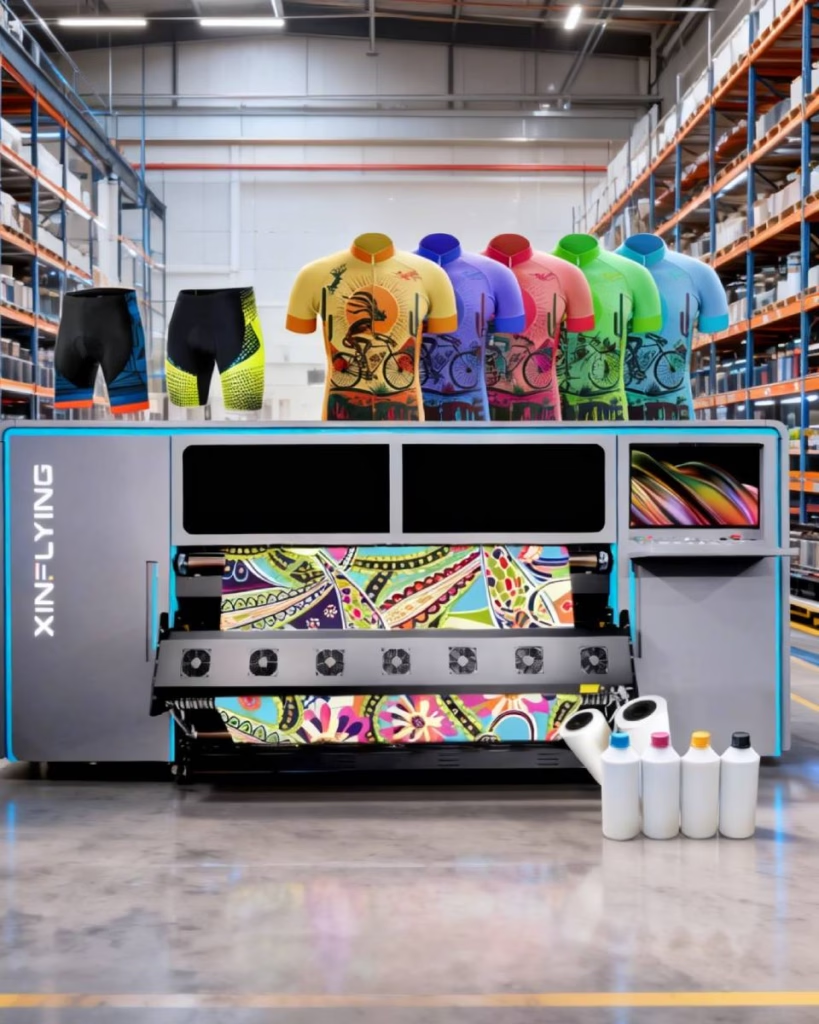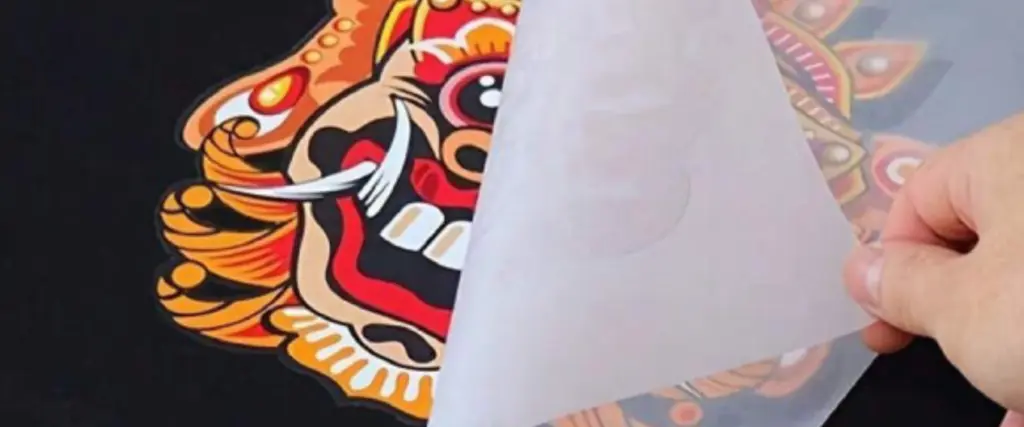
Quelle: https://www.indiamart.com
Sublimationsdruck ist eine beliebte Methode zur Erstellung hochwertiger und langlebiger Drucke auf verschiedenen Substraten, von Stoffen über Keramik bis hin zu Metall. Jedoch, Um lebendige und langlebige Sublimationsdrucke zu erzielen, bedarf es mehr als nur der richtigen Ausrüstung und Materialien. Es erfordert Fachwissen in jeder Phase des Sublimationsdruckprozesses, Von der Entwurfsvorbereitung bis zu den Nachdrucktechniken.
In diesem Artikel, Wir werden die wesentlichen Schritte erkunden, um lebendige und langlebige Sublimationsdrucke zu erzielen, einschließlich der Auswahl der richtigen Materialien, Vorbereitung des Entwurfs, richtige Drucktechniken, Nachdrucktechniken, und Behebung häufiger Probleme. Durch die Ausführung dieser Schritte, Sie können Sublimationsdrucke erstellen, die nicht nur optisch beeindruckend, sondern auch langlebig und langlebig sind.
Wählen Sie das richtige Substrat

Quelle: https://plasticsdecorating.com
Wenn es um Sublimationsdruck geht, Die Wahl des Substrats ist entscheidend für die Erzielung hochwertiger und langlebiger Drucke. Hier finden Sie einige Tipps zur Auswahl des richtigen Substrats:
Polyester
Beim Sublimationsdruck wird Farbstoff durch Hitze und Druck auf ein Substrat übertragen. Polyester ist das im Sublimationsdruck am häufigsten verwendete Substrat, da es eine hohe Affinität zu Farbstoffen aufweist und den hohen Temperaturen standhält, die für den Transferprozess erforderlich sind. Stellen Sie sicher, dass das von Ihnen gewählte Polyestersubstrat speziell für den Sublimationsdruck geeignet ist.
Helle und glatte Oberflächen
Der Sublimationsdruck funktioniert am besten auf hellen und glatten Oberflächen, da der Farbstoff vollständig absorbiert werden kann und lebendige Farben entstehen. Dunkle und strukturierte Oberflächen können den Übertragungsvorgang beeinträchtigen und zu weniger lebendigen Farben führen.
Betrachten Sie die Anwendung
Berücksichtigen Sie bei der Auswahl des Substrats den Verwendungszweck des Druckerzeugnisses. Zum Beispiel, wenn Sie ein T-Shirt bedrucken, Sie benötigen ein Substrat, das angenehm zu tragen ist und dem Waschen und Tragen standhält.
Wählen Sie die richtige Sublimationstinte
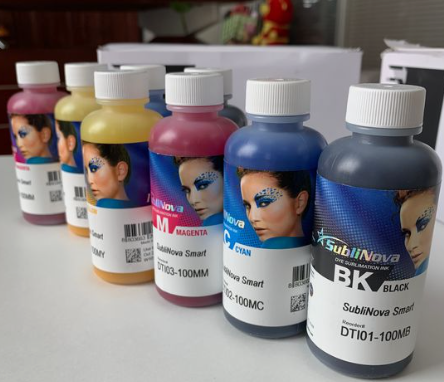
Quelle: https://www.pinterest.com.au
Die Wahl der richtigen Sublimationstinte ist entscheidend für die Erzielung hochwertiger und langlebiger Drucke im Sublimationsdruck. Hier finden Sie einige Tipps zur Auswahl der richtigen Sublimationstinte:
Passen Sie die Tinte an den Drucker an
Sublimationstinten wurden speziell für die Verwendung mit bestimmten Druckern entwickelt, Daher ist es wichtig, eine Tinte zu wählen, die mit Ihrem Druckermodell kompatibel ist.
Qualität und Konsistenz
Suchen Sie nach Sublimationstinten, die von hoher Qualität sind und konsistente Ergebnisse liefern. Tinten von geringer Qualität können zu einer schlechten Farbwiedergabe führen, Blutung, und reduzierte Haltbarkeit.
Farbraum
Der Farbraum, oder Farbpalette, die reproduziert werden kann, ist ein wichtiger Gesichtspunkt bei der Auswahl von Sublimationstinte. Suchen Sie nach Tinten, die einen großen Farbraum für eine genauere und lebendigere Farbwiedergabe bieten.
Haltbarkeit
Sublimationstinten sollten langlebig und waschbeständig sein, Sonnenlicht, und andere Umweltfaktoren. Suchen Sie nach Tinten, die speziell für hohe Haltbarkeit und Langlebigkeit entwickelt wurden.
Wählen Sie das richtige Sublimationstransferpapier
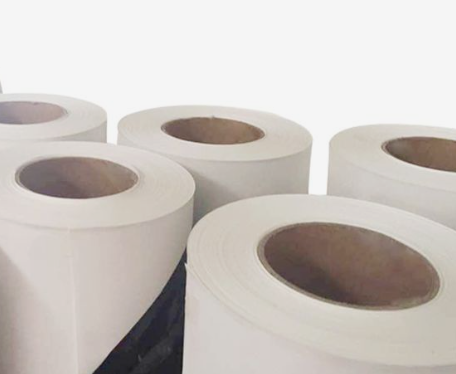
Quelle: https://www.pinterest.com.au
Die Qualität vonSublimationspapier können die Lebendigkeit und Langlebigkeit von Sublimationsdrucken beeinträchtigen. Minderwertiges Transferpapier nimmt die Tinte möglicherweise nicht richtig auf, Dies führt zu stumpfen Farben und verringerter Haltbarkeit. Hochwertiges Transferpapier mit einer speziellen Beschichtung kann den Sublimationsprozess verstärken, Dies führt zu lebendigeren Farben und einer verbesserten Haltbarkeit.
Beim Sublimationsdruck werden verschiedene Arten von Transferpapieren und Beschichtungen verwendet. Klebriges Transferpapier verfügt über eine Klebeschicht, die dabei hilft, das Substrat während des Übertragungsvorgangs an Ort und Stelle zu halten. Schnell trocknendes Transferpapier verkürzt die Trocknungszeit, während normales Transferpapier günstiger ist. Transferpapier kann einseitig oder zweiseitig sein, mit Beschichtungen, die die Farbbrillanz verbessern und Geisterbilder oder Ausbluten reduzieren.
Um im Sublimationsdruck hochwertige und langlebige Drucke zu erzielen, Es ist entscheidend, das richtige Sublimationstransferpapier auszuwählen. Hier sind einige Tipps:
- Passen Sie das Papier an Ihren Drucker an, sorgen für Qualität und Konsistenz.
- Erwägen Sie beschichtete Papiere für eine bessere Farbbrillanz und weniger Geisterbilder.
- Wählen Sie das passende Gewicht und die richtige Größe für Ihre Anwendung.
- Berücksichtigen Sie die Auswirkungen auf die Umwelt, und Kosten mit Lebensdauer und Ertrag in Einklang bringen.
- Transferpapier von geringer Qualität kann zu einer schlechten Farbwiedergabe führen, Blutung, und reduzierte Haltbarkeit.
Richtige Drucktechnik

Quelle: https://Sellmerch.org
Gewährleistung einer präzisen Farbwiedergabe, Schärfe, und Haltbarkeit beim Sublimationsdruck erfordern den Einsatz geeigneter Drucktechniken. Temperatur, Druck, und Zeiteinstellungen müssen korrekt sein, um eine schlechte Übertragungsqualität und eine verkürzte Lebensdauer des Endprodukts aufgrund von Unter- oder Überpressung zu verhindern. Daher, Beim Sublimationsdruck ist die richtige Drucktechnik von entscheidender Bedeutung.
Um lebendige und langlebige Sublimationsdrucke zu erzielen, Es ist wichtig, die Zeit und Temperatur der Heißpresse an das Substrat und die Tinte anzupassen.
- Vermeiden Sie unzulässigen Druck, der zu Unter- oder Überpressung führen kann.
- Verwenden Sie hochwertige Produkte Sublimationstinte, Übertragungspapier, und Substrat.
- Sorgen Sie für eine ordnungsgemäße Kalibrierung und Reinigung der Geräte.
Es ist wichtig, Drucke zu testen, bevor die vollständige Produktion im Sublimationsdruck erfolgt. Auf diese Weise können Sie etwaige Probleme oder Probleme mit dem Design identifizieren, Farbe, oder Transferprozess, bevor eine große Menge an Drucken erstellt wird.
Tests helfen Ihnen auch dabei, die Einstellungen zu verfeinern und das Design nach Bedarf anzupassen, um optimale Ergebnisse zu erzielen. Verwenden Sie eine kleine Probe des Substrats und des Transferpapiers, um den Druck zu testen, und notieren Sie sich die verwendeten Einstellungen zum späteren Nachschlagen. Sobald Sie mit dem Testdruck zufrieden sind, Sie können mit der vollständigen Produktion mit größerem Vertrauen in die Qualität und Konsistenz des Endprodukts fortfahren.
Richtige Nachdrucktechnik

Quelle: https://www.prodigi.com
Beim Sublimationsdruck ist die richtige Nachdrucktechnik unerlässlich, um hochwertige und langlebige Drucke zu erzielen. Das Abkühlen des Drucks vor der Handhabung oder Verpackung verhindert ein Verschmieren oder Anhaften, Während Sie überschüssiges Papier abschneiden und das Substrat waschen, sorgen Sie für ein sauberes Finish. Eine ordnungsgemäße Handhabung und Lagerung verhindert Schäden, Fading, und Verfärbung des Drucks, während die regelmäßige Reinigung der Geräte die optimale Leistung aufrechterhält und Verunreinigungen verhindert.
Zusammenfassend, Die Einhaltung geeigneter Nachdrucktechniken ist entscheidend für die Gewährleistung der Haltbarkeit und Qualität des Endprodukts.
- Lassen Sie den Druck abkühlen
Nach der Übertragung des Motivs auf den Untergrund, Lassen Sie den Druck abkühlen, bevor Sie ihn anfassen oder verpacken. Dadurch wird ein Verschmieren oder Anhaften des Drucks verhindert.
- Schneiden Sie überschüssiges Papier ab
Schneiden Sie überschüssiges Papier von den Kanten des Substrats ab, um ein sauberes Finish zu erzielen.
- Waschen Sie den Untergrund
Für Stoffe, Waschen Sie das Substrat vor der Verwendung, um alle Rückstände von Beschichtungen oder Ölen zu entfernen, die den Sublimationsdruck beeinträchtigen könnten. Verwenden Sie ein Feinwaschmittel und verzichten Sie auf Weichspüler.
- Vorsichtig behandeln
Vermeiden Sie groben Umgang mit dem Substrat, um Schäden am Druck zu vermeiden.
- Richtig lagern
Lagern Sie das fertige Produkt an einem trockenen und kühlen Ort ohne direkte Sonneneinstrahlung, um ein Ausbleichen und Verfärben zu verhindern.
- Reinigen Sie die Ausrüstung
Reinigen Sie die Transferpresse und andere Geräte regelmäßig, um eine optimale Leistung aufrechtzuerhalten und Verunreinigungen zu vermeiden.
Gewährleistung einer geeigneten Umgebung zum Drucken

Quelle: https://www.zenoffice.com
Beim Sublimationsdruck ist es wichtig, für eine geeignete Druckumgebung zu sorgen, um konsistente und qualitativ hochwertige Ergebnisse zu erzielen. Hier sind einige Tipps, die Sie befolgen sollten:
- Temperatur- und Feuchtigkeitskontrolle
Der Sublimationsdruck funktioniert am besten in einer kontrollierten Umgebung mit stabilen Temperatur- und Luftfeuchtigkeitsniveaus. Der ideale Temperaturbereich liegt zwischen 68 und 75 °F, und relative Luftfeuchtigkeit sollten dazwischen gehalten werden 45-55%.
- Richtige Belüftung
Um eine sichere Arbeitsumgebung zu gewährleisten, ist eine ausreichende Belüftung unerlässlich. Verwenden Sie Abluftventilatoren oder öffnen Sie Fenster, um Dämpfe abzuleiten und einen Hitzestau zu verhindern.
- Sauberkeit
Sorgen Sie für einen sauberen und organisierten Arbeitsplatz, um Kontaminationen zu verhindern und eine optimale Leistung der Geräte sicherzustellen.
- Beleuchtung
Der Arbeitsbereich sollte gut beleuchtet sein, um eine Überanstrengung der Augen zu vermeiden und eine genaue Farbwiedergabe zu gewährleisten.
- Lärmschutz
Der Sublimationsdruck kann laut sein, Erwägen Sie daher die Verwendung von Kopfhörern mit Geräuschunterdrückung oder andere Methoden zur Reduzierung des Geräuschpegels.
Indem Sie diese Tipps befolgen, Sie können eine sichere und optimale Umgebung für den Sublimationsdruck gewährleisten, Dies führt zu konsistenten und qualitativ hochwertigen Drucken.
Fehlerbehebung häufiges Problem

Quelle: https://www.wavex.co.uk
Sublimationsdruck kann ein komplexer Prozess sein, und während des Druckvorgangs können verschiedene Probleme auftreten. Hier finden Sie einige häufig auftretende Probleme und Tipps zur Fehlerbehebung:
- Verblassende oder matte Farben
Dies kann an minderwertiger Tinte liegen, falsche Temperatur- oder Druckeinstellungen, oder ein unsachgemäßer Übertragungsprozess. Verwenden Sie hochwertige Tinte und achten Sie auf die richtigen Einstellungen, und erwägen Sie die Verwendung eines beschichteten Transferpapiers, um die Farbbrillanz zu verbessern.
- Verschwommene oder geisterhafte Bilder
Dies kann auf falschen Druck oder die Verwendung von minderwertigem Transferpapier zurückzuführen sein. Passen Sie den Druck an und erwägen Sie die Verwendung eines beschichteten Transferpapiers, um Geisterbilder zu reduzieren.
- Ungleichmäßige oder unvollständige Übertragung
Dies kann auf falsche Druck- oder Temperatureinstellungen zurückzuführen sein, oder Sie verwenden das falsche Transferpapier. Passen Sie die Einstellungen an und verwenden Sie ein beschichtetes Transferpapier, das für Ihre spezielle Anwendung entwickelt wurde.
- Beschädigung des Untergrundes
Dies kann durch Überhitzung oder übermäßiges Pressen auftreten. Verwenden Sie die empfohlenen Temperatur- und Druckeinstellungen für Ihr spezifisches Substrat, und vermeiden Sie Überhitzung oder übermäßiges Pressen.
- Schrumpfung oder Verformung des Substrats
Dies kann auf übermäßige Hitze oder Druck während des Transfervorgangs zurückzuführen sein. Verwenden Sie die empfohlenen Einstellungen für Ihr spezifisches Substrat, und vermeiden Sie übermäßiges Pressen oder Überhitzen.
- Papierstaus
Dies kann durch falsches Einlegen des Transferpapiers verursacht werden. Achten Sie darauf, das Papier richtig einzulegen und eine Überladung zu vermeiden Sublimationsdrucker.
Abschluss

Quelle: https://www.pinterest.com.au
Abschließend, Mit den richtigen Materialien lassen sich lebendige und langlebige Sublimationsdrucke erzielen, Techniken, und Ausrüstung. Auf der Suche nach einem zuverlässigen Hersteller von Sublimationsdruckern, Es ist wichtig, Faktoren wie Druckqualität zu berücksichtigen, Geschwindigkeit, und Haltbarkeit. Sublimationsdrucker von namhaften Herstellern wie Epson, Sägegras, und Ricoh bieten hervorragende Druckqualität und Zuverlässigkeit.
Zusätzlich, das Entstehen DTF-Drucker Technologie und DTG-Druckers kann auch hochwertige Sublimationsdrucke auf verschiedenen Stoffen herstellen. Indem Sie die in diesem Artikel beschriebenen Tipps und Techniken befolgen und in die richtige Ausrüstung investieren, Sie können atemberaubende Sublimationsdrucke erstellen, die sowohl lebendig als auch langlebig sind.

